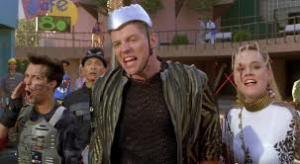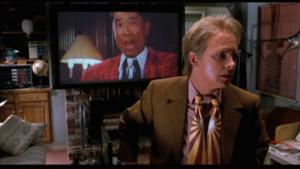On Threatening an Employee with an Extraordinary Time
Happy Monday, dear readers!
It’s beginning to look a lot like Christmas – Mariah Carey’s “All I want for Christmas is You” is blasting from every store and radio station, Amazon boxes are piling up on porches, and e-mail auto-replies are outnumbering actual messages. What a wonderful season!
Now, while the above is the norm now adays, the workers’ compensation system has a strong opinion on what is normal and what is… extraordinary. That’s right dear readers! This is a post about the sudden and extraordinary exception to the 6-month employment rule of Labor Code section 3208.3(d).
The basic rule is that there is a bar to psychiatric claims for employees with a tenure of under 6 months, but not if the psychiatric injury is the result of a “sudden and extraordinary employment condition.” The case law is fascinating in this field because we get an interesting peek at to what is considered normal and what is considered extraordinary. For example, a wet sidewalk is not an extraordinary condition (it does rain, after all).
The case law has also established that it is applicant’s burden to prove that the employment condition was extraordinary, and that it is the employment condition that must be extraordinary, not the catastrophic results of the injury.
So now consider the case of Emery v. Hertz Corporation, a recent panel decision. The WCJ determined, after trial, that applicant’s psychiatric injury was caused by a sudden an extraordinary condition, defeating the 6-month employment bar. The mechanism? An irate customer yelled at applicant over the phone, threatened to sue, and then also threatened to come to her worksite and teach her a lesson about customer service. Applicant also claimed the caller threatened to “shoot” her or “hurt” her.
Generally speaking, workplace violence is an “extraordinary” event, with the exception of some professions that deal with violence regularly, but what about threats of violence?
The trial Judge found that a credible threat of workplace violence qualified as “extraordinary,” relying on the standard set out in Matea v. WCAB — “the types of events that would naturally be expected to cause psychiatric disturbances even in a diligent and honest employee.” If you got a call from an angry customer threatening to come to your workplace and shoot or hurt you, would that be likely to cause a psychiatric injury?
The WCAB affirmed the trial judge’s determination that 3208.3(d) does not bar the psyche claim.
So, the takeaways from this claim? A remote (telephone, email, etc.) threat of workplace violence that an employee subjectively finds credible, in a profession where workplace violence is not expected will likely be considered a “sudden and extraordinary” employment condition.
Ho, ho, ho, dear readers!

